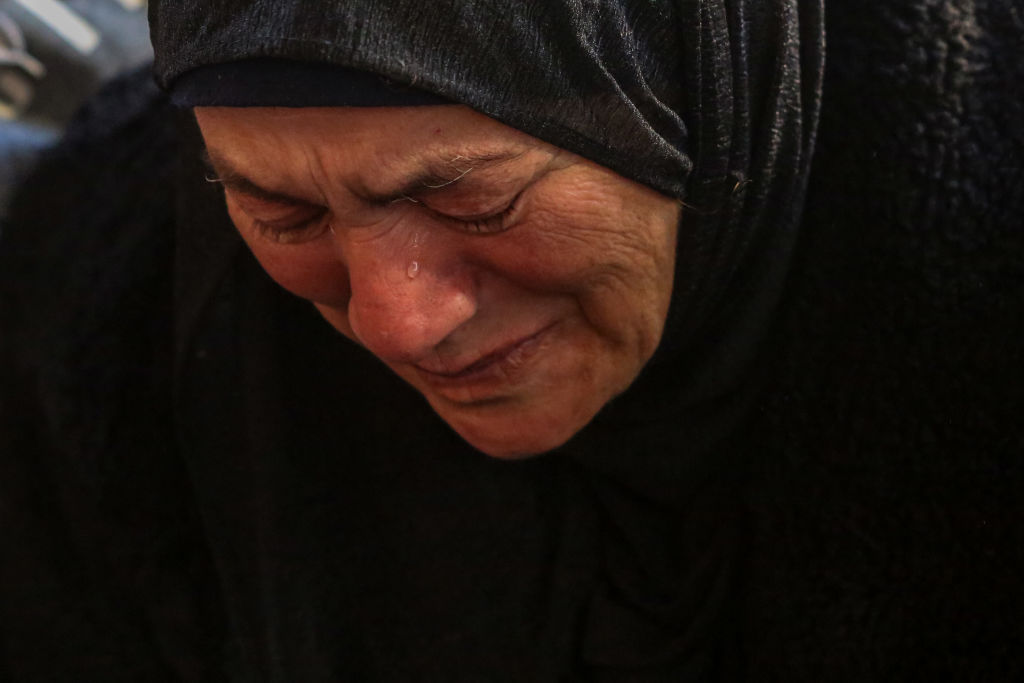As an international reporter, I get to immerse myself into other people’s worlds to learn about things that are happening there and document how those things make people think, feel, and act. Although I am based in East Africa, I cannot claim to belong to East Africa, which makes me an outsider to the communities on which I primarily report. To overcome cultural and language barriers that might prevent me from getting the information I need to tell the story, I partner with reporters who are from the community. Without their collaboration, I would be unable to do the work that I do. The same goes for almost all foreign correspondents.
When I began working on my latest story for The Fuller Project and Foreign Policy about the toll of the war in Gaza on widows and female heads of households, I knew that the success of the article hinged on my ability to partner with a talented female reporter living within the borders of the 141 square mile Gaza Strip. Through my networks, I was introduced to Ruwaida Amer, a 32-year-old print and video freelance reporter who has been covering Gaza for the past 10 years.
The experience of working with Ruwaida was unlike any other I’ve had. Although I’ve reported in conflict zones before, Gaza is the most dangerous, volatile, and chaotic place I’ve been asked to cover. Communications are spotty and unreliable. The news coming out of cities and villages inside Gaza is increasingly grim. Sometimes, I’d send Ruwaida a WhatsApp message, only to see a single tick mark pop up, indicating it had not gone through. Sometimes the single tick would remain for a few days. I’d check social media and the news to see what was happening in her city, Khan Yunis, and learn that there was heavy fighting in that area. Then, I’d wait.
During the week, I’d check in to see how she was doing. “Pray for us. The days pass with difficulty for my heart,” she wrote to me. She had to organize her reporting around the violence. Sometimes, she couldn’t travel to the women’s shelter she had planned to visit because of skirmishes in that area. Sometimes, she couldn’t file her work because communications had been cut. “Sorry,” she’d write. “They attacked us very hard. Strong bombing.”
I tried to imagine what it might feel like to cover a conflict in which 1 in every 100 people in my hometown of Boston, Massachusetts — the place I was born, grew up, went to school, lived, and worked — had been killed. I couldn’t. So I’ve asked Ruwaida to try to explain it, and here is what she said, edited for clarity:
“Working as a conflict journalist is not an easy thing. I am used to producing humanitarian and social stories about the beauty of Gaza and its people, but these war stories hurt the heart.
The stories of the women who lost their husbands were very sad. When I was talking to the women, they were crying. Crying because of loss. Crying because of responsibility. The huge responsibility they must now bear to raise their children and provide for their needs. I felt sad, and for some moments, I cried with them.
Life in Gaza is not easy, and a woman cannot bear it alone without her husband. Wars have a disproportionately negative impact on women. They lose their husbands and children, and their homes are destroyed.
In some interviews, I could not bear the sadness of the women. In our story, we wrote about Maryam Abu Akar, whose 17-year-old daughter Sarah was killed by a bomb. Just seven weeks later, her husband, Salama, was killed by another bomb. She was crying bitterly because she lived the experience of loss and the destruction of her home. She felt like she was in a nightmare, and she used to ask me, ‘Is this real? Tell me it’s a nightmare, and it will end.’
When I try to imagine how I would feel if I were in this situation, I think I would not be okay. It is difficult to get used to life without a husband. How will the days pass with your children asking about their father? How difficult will the responsibility be after losing him? This feeling is painful, which is why my eyes filled with tears when the women talked.”



